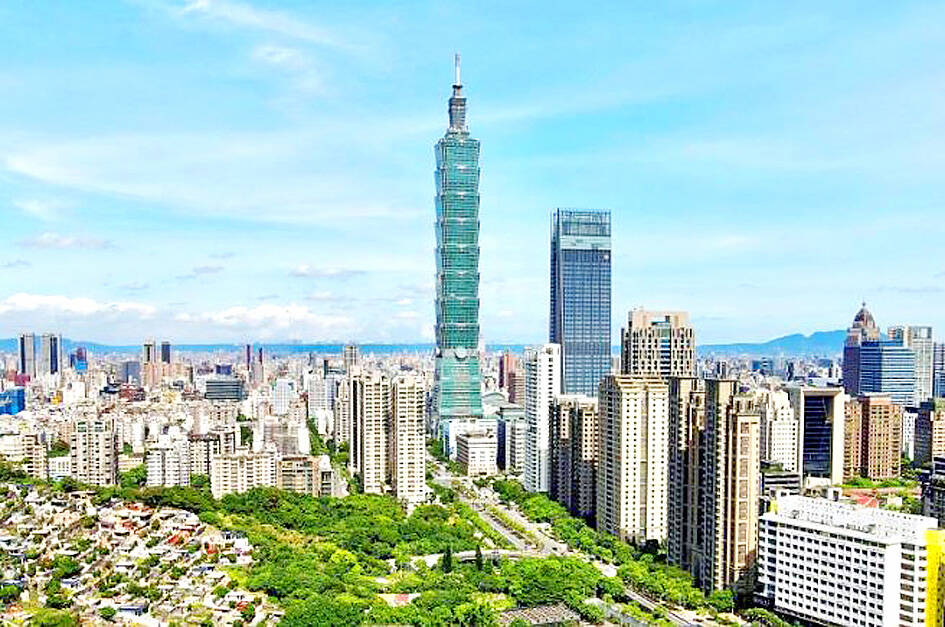Taiwan has again ranked third in Asia in the IMD 2023 World Talent Ranking, which measures the availability of workers with needed skills and the quality of local talent.
The IMD World Talent Report was published on Thursday last week by the Swiss-based International Institute for Management Development (IMD), ranking Taiwan No. 20 among the 64 economies evaluated. The nation dropped one place from No. 19 last year, and four places from No. 16 in 2021. It ranked behind Singapore in eight place and Hong Kong which placed16th.
The IMD report said that the results showed “the effects of the COVID-19 pandemic on the talent competitiveness landscape,” as many regions, including East Asia, “still display lower talent competitiveness in 2023 than in 2019.”

Photo: AFP
The National Development Council (NDC) said the IMD also reported a downturn in business confidence in some economies due to the relatively depressed global economic climate, which has resulted in sharper shifts in rankings.
IMD’s ranking system measures factors including “investment and development,” “appeal” and “readiness,” in which Taiwan is ranked 23rd, 21st and 19th respectively.
In the “appeal” category, or the extent to which a country is appealing to or able to tap into the overseas talent pool, Taiwan has moved up from last year’s 25th position to 21st this year. Of the 11 sub-factors in “appeal,” Taiwan is especially strong in “worker motivation” in which it is ranked fourth in the world.
The NDC said this shows the positive effect of the nation’s policies which were introduced during the COVID-19 pandemic to keep companies active and talent in the country.
Among the 12 sub-factors under “readiness,” or the availability of skills and competencies in the local talent pool, Taiwan’s strengths are in “graduates in sciences” and “educational assessment,” in which it placed seventh and eighth respectively.
The NDC said this reflects the efforts that have been put into training local talent; expanding science, technology, engineering and mathematics (STEM) departments, and setting up interdisciplinary digital technology programs.
However, what requires further attention are sub-factors such as “skilled labor,” “international experience” of senior managers, and “language skills” that meet the needs of enterprises, the NDC said.
Taiwan saw major declines in these categories compared with last year, falling 10, 13 and 10 places, respectively.
In the “investment and development” category, Taiwan ranked second in terms of “health infrastructure” and seventh in “employee training.”
The NDC said there is room for improvement regarding Taiwan’s talent readiness in a globalized era undergoing a digital transition.
Toward that end, the government’s Bilingual 2030 policy has been gradually implemented and research institutes in key fields and regional technical training bases have been established. They are aimed at meeting the needs of industrial development and preparing locally trained talent for the global market, the council said.
The government would continue upgrading the six core strategic industries — information and digital industries, cybersecurity, precision health, green and renewable energy, national defense and strategic industries, and strategic stockpile — and enhancing the quality and quantity of Taiwan’s local and foreign talent with policies, it said.

An essay competition jointly organized by a local writing society and a publisher affiliated with the Chinese Communist Party (CCP) might have contravened the Act Governing Relations Between the People of the Taiwan Area and the Mainland Area (臺灣地區與大陸地區人民關係條例), the Mainland Affairs Council (MAC) said on Thursday. “In this case, the partner organization is clearly an agency under the CCP’s Fujian Provincial Committee,” MAC Deputy Minister and spokesperson Liang Wen-chieh (梁文傑) said at a news briefing in Taipei. “It also involves bringing Taiwanese students to China with all-expenses-paid arrangements to attend award ceremonies and camps,” Liang said. Those two “characteristics” are typically sufficient

A magnitude 5.9 earthquake that struck about 33km off the coast of Hualien City was the "main shock" in a series of quakes in the area, with aftershocks expected over the next three days, the Central Weather Administration (CWA) said yesterday. Prior to the magnitude 5.9 quake shaking most of Taiwan at 6:53pm yesterday, six other earthquakes stronger than a magnitude of 4, starting with a magnitude 5.5 quake at 6:09pm, occurred in the area. CWA Seismological Center Director Wu Chien-fu (吳健富) confirmed that the quakes were all part of the same series and that the magnitude 5.5 temblor was

The brilliant blue waters, thick foliage and bucolic atmosphere on this seemingly idyllic archipelago deep in the Pacific Ocean belie the key role it now plays in a titanic geopolitical struggle. Palau is again on the front line as China, and the US and its allies prepare their forces in an intensifying contest for control over the Asia-Pacific region. The democratic nation of just 17,000 people hosts US-controlled airstrips and soon-to-be-completed radar installations that the US military describes as “critical” to monitoring vast swathes of water and airspace. It is also a key piece of the second island chain, a string of

The Central Weather Administration has issued a heat alert for southeastern Taiwan, warning of temperatures as high as 36°C today, while alerting some coastal areas of strong winds later in the day. Kaohsiung’s Neimen District (內門) and Pingtung County’s Neipu Township (內埔) are under an orange heat alert, which warns of temperatures as high as 36°C for three consecutive days, the CWA said, citing southwest winds. The heat would also extend to Tainan’s Nansi (楠西) and Yujing (玉井) districts, as well as Pingtung’s Gaoshu (高樹), Yanpu (鹽埔) and Majia (瑪家) townships, it said, forecasting highs of up to 36°C in those areas